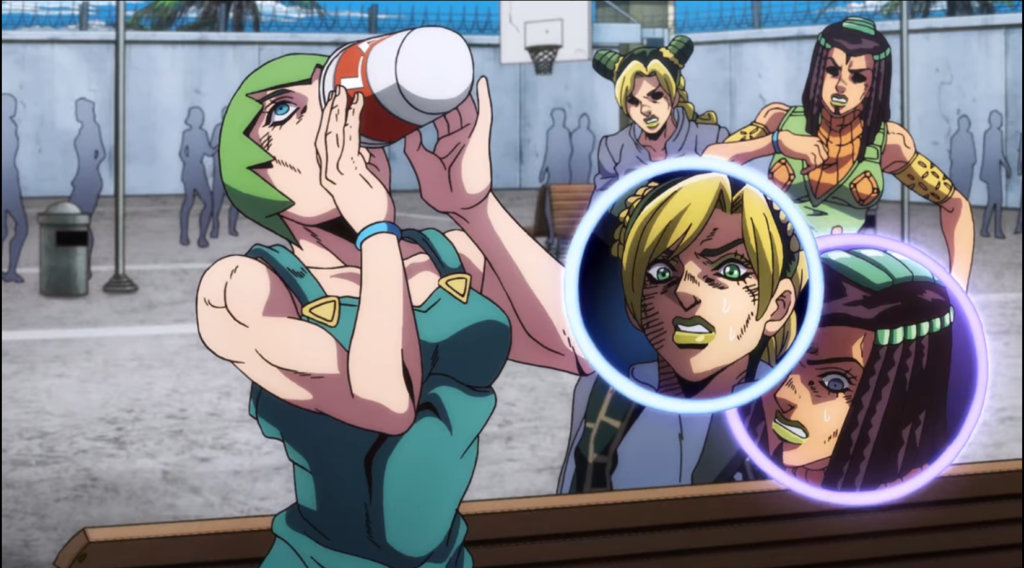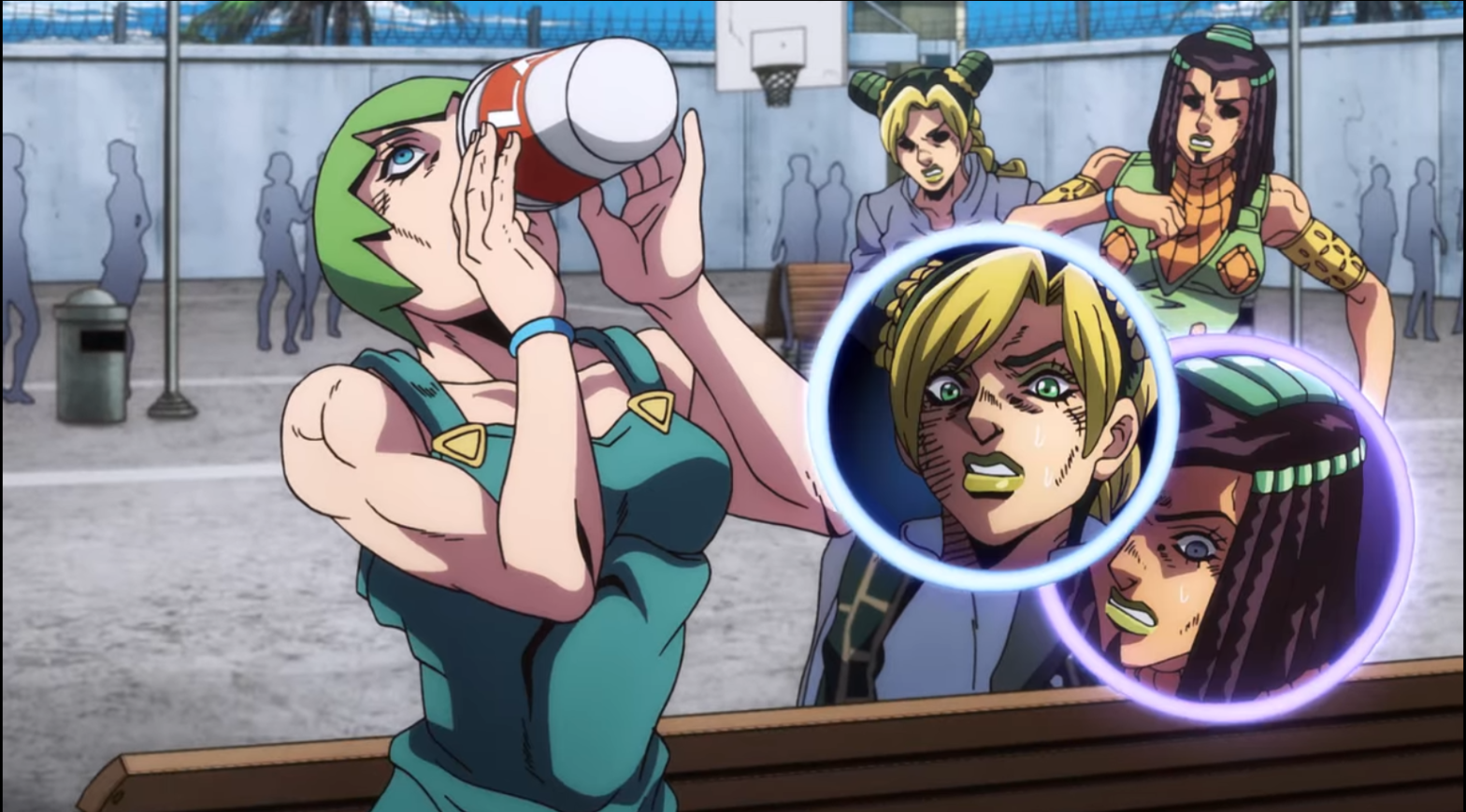Anime Review: Jojo’s Bizarre Adventure: Stone Ocean
When Jolyne Cujoh was growing up in Florida, her father, marine biologist Jotaro Kujo, wasn’t around much. Feeling neglected, Jolyne acted out, stealing a car. That barely got her noticed, so it seemed, as Jotaro just made sure she was physically okay. Then she started going out with rich but irresponsible boy Romeo Jisso. While they’re out driving, Romeo got involved in a hit and run. He, with the help of a crooked lawyer, convinced Jolyne to take the fall for him on the grounds that as a minor, she wouldn’t be harshly punished. Instead, the judge was incensed and sentenced Jolyne to fifteen years in Green Dolphin Street State Prison. Jotaro still couldn’t make it in person immediately, but he did send a present to Jolyne that might help out.

Jolyne discovers that she has a “Stand”, a psychic projection that gives her superhuman abilities, in this case the ability to unravel her body like a string. This power is versatile, and Jolyne names her Stand “Stone Free.” Several other people within Green Dolphin also have Stands, most of them enemies. Jolyne manages to gain a few allies: Ermes Costello, whose stand Kiss allows her to make duplicates of things; Emporio Alniño (a child born and orphaned within the prison) whose Burning Down The House is a “phantom” copy of the prison’s previous music room before it was destroyed in a fire, and from which he can summon items; Foo Fighters, aka F.F., the Stand of whom is spoilery; Weather Report, an amnesiac who can control the weather; and Narciso Anasui, whose Stand Diver Down can submerge into objects for various effects.
Jotaro does finally show up at the prison, but getting him there was the point of the whole exercise, and he’s soon rendered near-comatose for most of the story. It turns out he had something the antagonist, Father Enrico Pucci (chaplain at the Green Dolphin Street prison) needed to complete his plan to bring about “Heaven.” Now our motley assortment of criminals and weirdos must band together to stop him.
This is the sixth installment of Jojo’s Bizarre Adventures, based on the manga by Hirohiko Araki. It’s the last set in the original continuity (future installments take place on an alternate history Earth), and completes at last the struggle between the will of Dio Brando and the Joestar bloodline. It’s the first to center female characters for most of its run, with Jolyne as the primary protagonist and Ermes as an important partner. F.F. is non-binary, but female shaped.
Florida is an excellent setting for this part, with its real-life reputation for being where weird things happen and eccentric people do bizarre actions. The author has done enough research to make the setting almost plausible, while still taking large liberties with reality on a frequent basis. (For example, real Florida prisons don’t attach explosives to prisoners to prevent escapes…yet.)
The cast is interesting, and the battles imaginative. There are some really freaky moments, like the one that evokes both Junji Ito and Patricia Highsmith. There’s widespread civilian casualties, so the stakes feel especially high this time.
On the other hand, Jolyne and several of her allies have abrasive personalities, which make it hard to warm up to them. Father Pucci seems more pleasant in contrast to his horrific deeds. Presumably he hid his dark side better when he applied for the job.
One of the big themes is “gravity”, both in the sense of the physical force, and the fated attraction of people towards each other to play out their destiny. Father Pucci, in many ways, wants to be “the center of gravity”, choosing his version of Heaven for everyone else. Another is the desire to be free, symbolized here as in Papillon by butterflies.
Content warning: Lots and lots of violence, often gory. More body horror than ever before in this series. Prison guard (and prisoner) brutality. Suicide. Death of children. Mentions of prostitution and masturbation. Death of animals. Racism makes an appearance late in the story as part of some characters’ tragic backstory.
Overall: An interesting ending to the original Jojo story that really does feel like a good place to stop. Not everyone likes the ending to this one, but I think it works well.

